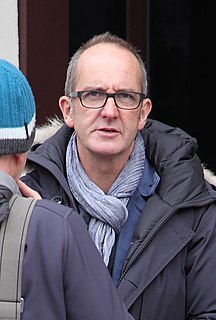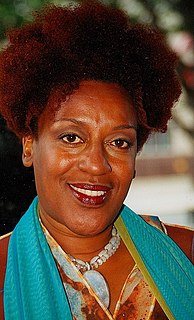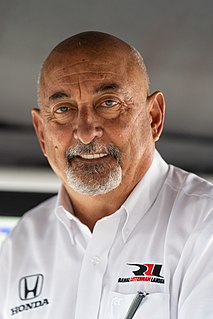A Quote by Laurie Anderson
The problem with prototypes is they don't always work.
Quote Topics
Related Quotes
Building a house from scratch in the middle of a field is a bit like building a prototype car. As with all prototypes, if you're building a car you usually have the luxury of producing several prototypes before you arrive at the production line version - so the opportunity for changing things is quite rich.
The problem I've always discovered in my own work when this kind of thing happens when you hit the wall is there's almost always a reason. You've almost always made a mistake in the initial conception of the project. You misapprehended something or you thought something would work and now you're three quarters on the way through and you see that it doesn't work.
As a writer, I've always believed that while my work and I myself are embedded in whatever period I am writing about, clearly I am sensitive to the winds that are blowing in the culture. At the same time, I have always felt that the issue was not to deal with the problem in the abstract, but to deal with the people who are in that problem. The emphasis is on the people. The general problem begins to resolve itself even before the play is finished.
You know how it always is, every new idea, it takes a generation or two until it becomes obvious that there's no real problem. It has not yet become obvious to me that there's no real problem. I cannot define the real problem, therefore I suspect there's no real problem, but I'm not sure there's no real problem.
It's a completely independent atelier and company. We develop the prototypes here. There's a pattern maker, a sample maker, a commercial team, a head of sales, an in-house production team. That's the price of independence. And in the studio I work closely with Sarah-Linh on the collection, and Nao takes care of development.
How many more years I shall be able to work on the problem I do not know; I hope, as long as I live. There can be no thought of finishing, for 'aiming at the stars' both literally and figuratively, is a problem to occupy generations, so that no matter how much progress one makes, there is always the thrill of just beginning.
People ask me over and over how is it that I work with stars. How do you work with Barbra Streisand, with Paul Newman, with Al Pacino, with Sally Field, Jane Fonda, you work with all these people. Isn't this a problem? And it isn't a problem at all. It's terrific. It's great fun. And I don't know what the answer is.



































